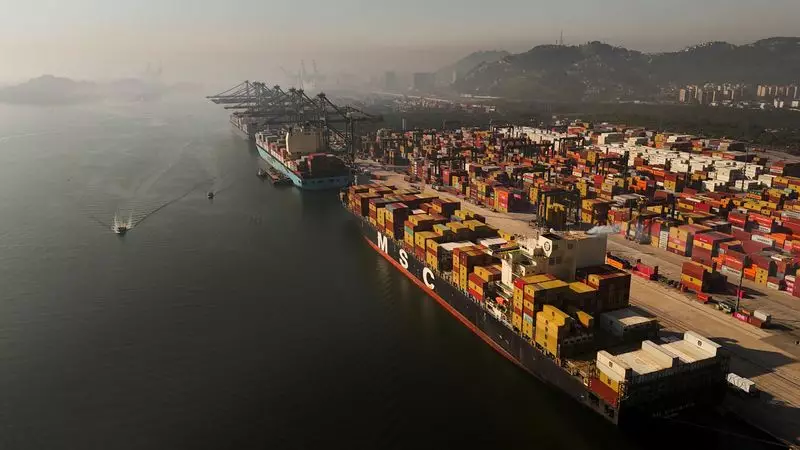In a rapidly changing global economy, analysts are beginning to speculate about the potential for a new trade war, particularly in the context of U.S.-China relations. The financial services company UBS has laid out a detailed analysis of how this may unfold, sitting on the cusp of a turbulent economic landscape. Their categorization of the conflict into three distinct phases—namely the “tweet phase,” the “imposition phase,” and the “impact phase”—offers a roadmap for understanding the gradual escalation of tensions in trade.
The first phase, referred to as the “tweet phase,” is already in play. This phase is marked by public statements, often made through social media platforms, where key political figures lay out their positions. These declarations serve multiple functions: they help to frame the narrative surrounding trade policies and can act as an initial form of pressure on trading partners. The significance of public posturing in today’s political landscape can’t be underestimated. From President Trump’s early trade-related tweets to more recent statements from global leaders, these proclamations can skew market sentiments and influence investor behavior even before formal policies are enacted. This phase, characterized by heightened rhetoric and strategic posturing, creates an atmosphere of tension that can prelude more substantial actions.
The second phase of this potential trade war, termed the “imposition phase,” is expected to formally begin in the first quarter of 2025. According to UBS, this phase will include legal procedures essential for the enforcement of tariffs. The groundwork must be laid meticulously, involving public consultations and an extended timeframe for drafting tariffs that can withstand legal challenges. This phase, being highly procedural, may also signal potential delays. The precise timing hinges on administrative priorities and the political landscape at the time.
The implications of this stage are far-reaching. It is during the imposition phase that businesses start adapting to the new economic environment. Companies may instinctively engage in stockpiling, altering their inventory management strategies to cushion against anticipated disruptions. However, the effect of these tariffs will not be confined to immediate market adjustments; broader economic repercussions—such as diminished trade volumes and a deceleration of growth—could commence even before the full effects of the tariffs filter through corporate earnings statements. The tension will build further as businesses assess their risks and adjust their strategies accordingly.
The Consequences of Escalation: The “Impact Phase”
Following the imposition of tariffs, the so-called “impact phase” will commence, likely in the second quarter of 2025. Here, the repercussions of the imposed tariffs will become tangible. UBS anticipates a marked reduction in trade volumes, which will trigger a wave of economic anxiety—agents across the market will revise their growth expectations downward. The immediate fallout could exacerbate volatility in emerging markets, especially impacting currencies like the Chinese yuan. Past trade tensions have shown that such currencies often endure significant pressure as investor sentiment shifts.
At this point, businesses will likely confront the dual challenge of managing heightened operating costs due to tariffs while grappling with a contracting market. The resultant economic slowdown could usher in a period of stagnation reminiscent of stagflation—a scenario marked by stagnant economic growth coinciding with elevated inflation. While UBS projects a scenario of moderate inflation, the specter of more entrenched economic malaise lingers.
Simultaneously intertwined with this potential trade war is an ongoing “negotiation phase.” This phase, which UBS predicts will persist throughout the year, will be characterized by ongoing discussions aimed at de-escalating tensions. The willingness of nations to engage in diplomacy, as exemplified by China’s recent moves to restrict critical exports, will be pivotal in determining how the situation unfolds. Trade policies are becoming increasingly transactional, susceptible to swift changes based on political developments.
As the global landscape becomes increasingly complex, it remains uncertain how markets will respond to this evolving trade conflict. The dynamics of negotiation and retaliatory measures will continue to be crucial elements in shaping 2025’s economic trajectory. UBS’s observations suggest that the potential for major shifts hangs in the balance, influenced by political maneuvering and economic realities. As the timeline progresses, the outcomes remain ambiguous, necessitating keen attention from investors and policymakers alike.

